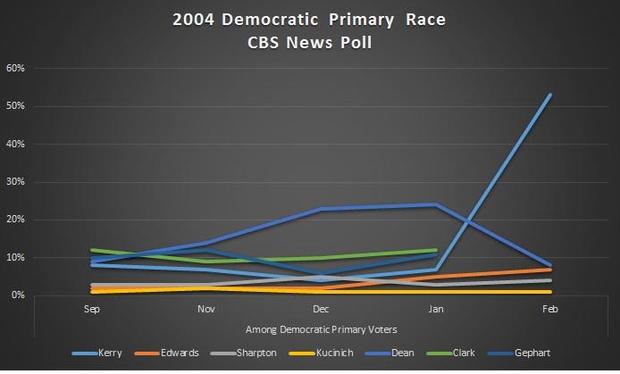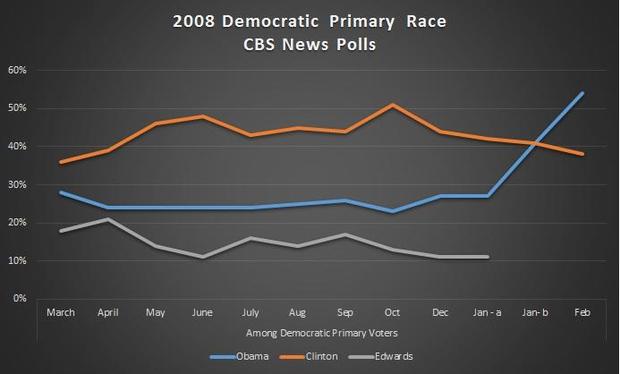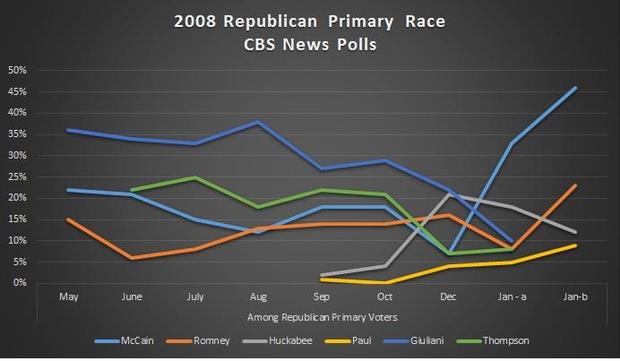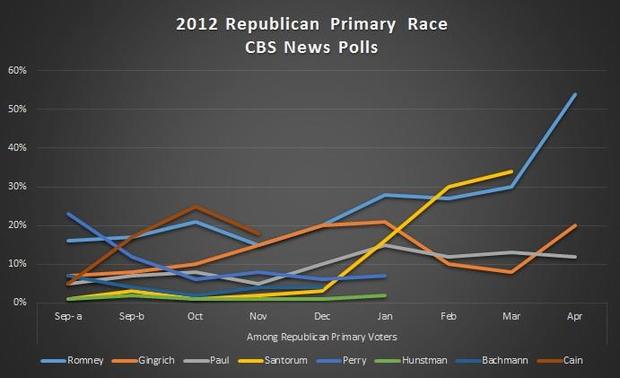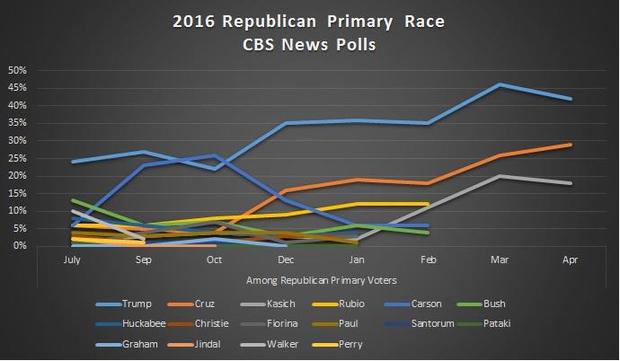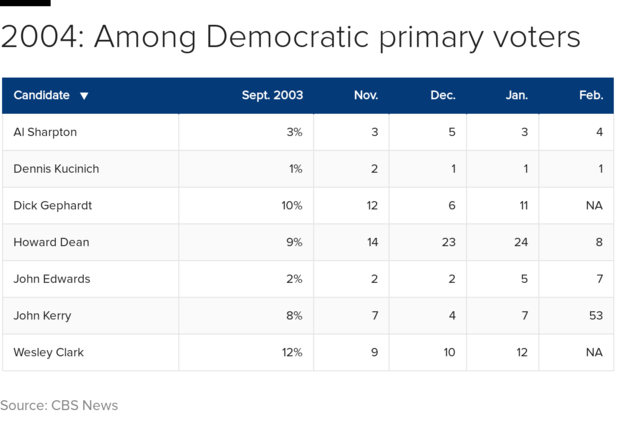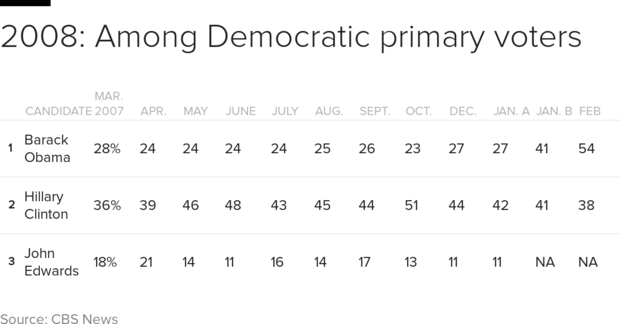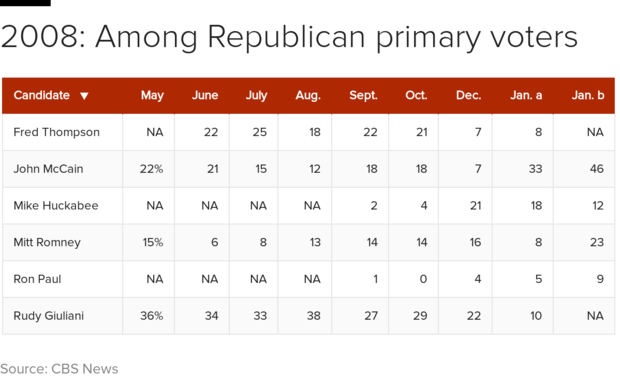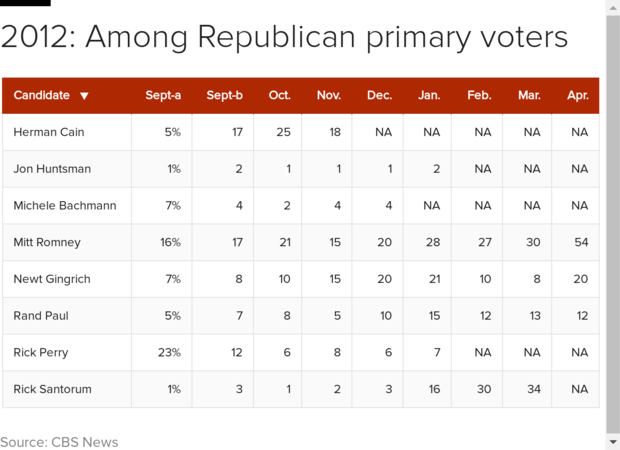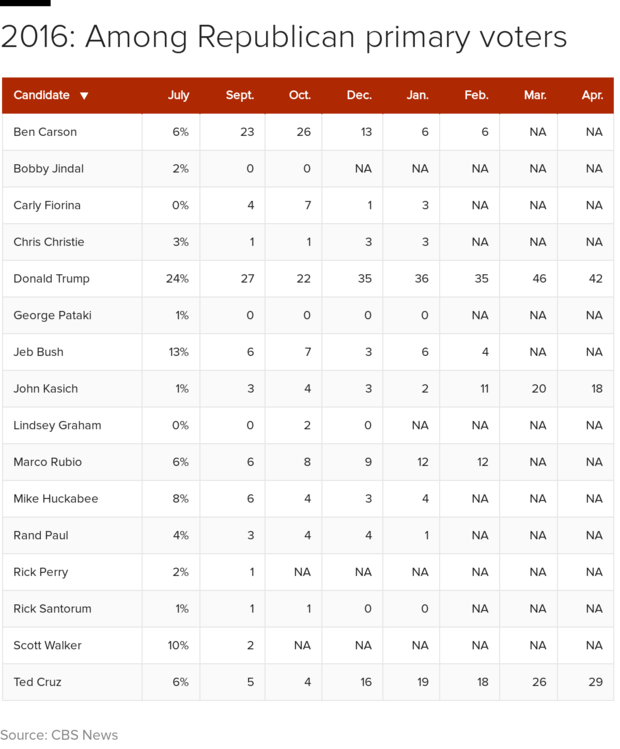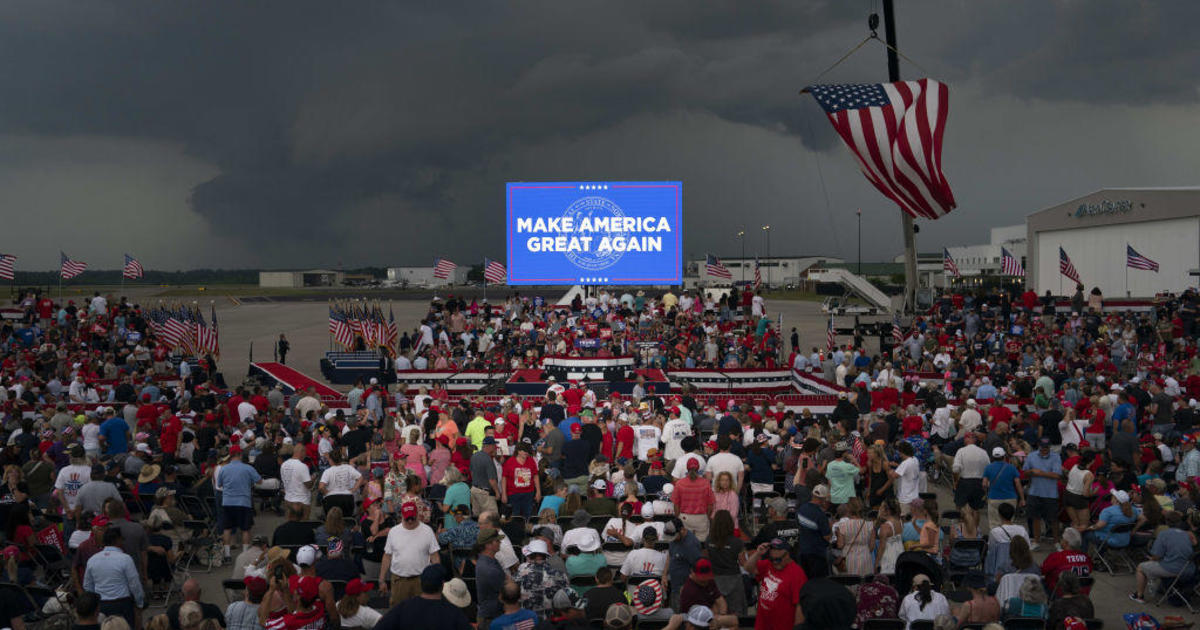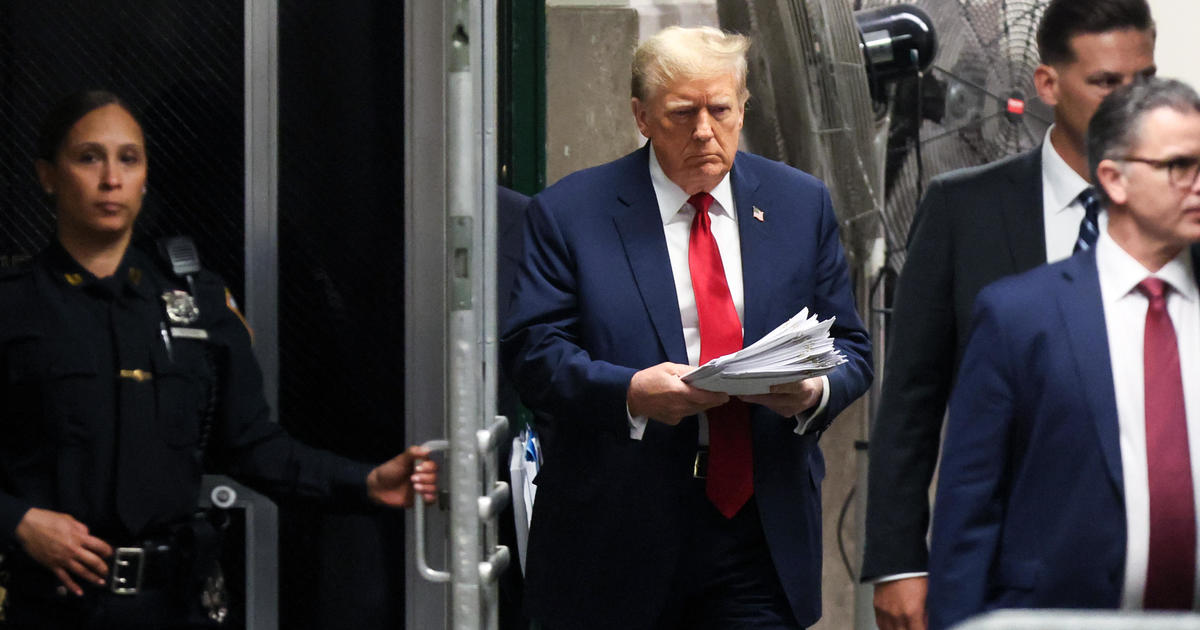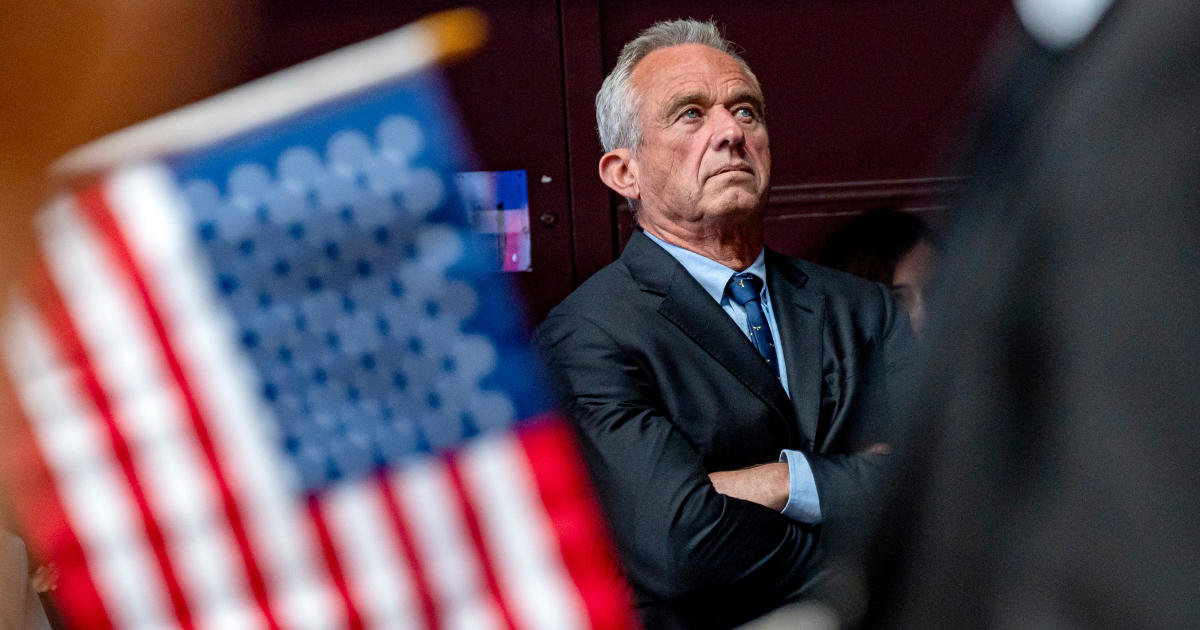The Democratic primary: How much does being an early frontrunner matter?
The 2020 race for the Democratic nomination has already begun, and we're already seeing some early polling results. But how much do standings among primary voters this early matter? A look back at past CBS News polling shows that since 2004, being an early frontrunner hasn't always led to the nomination.
Early on, few potential primary voters are paying close attention to the race, and most have not formed concrete opinions about most of the potential candidates. Candidates drop out unexpectedly, and other candidates enter the fray late, changing the dynamics of the race — at least temporarily. Not only does the early front runner not always win, but things can change dramatically over the course of the race both before and after the first primary votes are cast.
In some ways the 2004, Democratic primary race resembles 2020: it had a crowd of Democratic challengers vying for the chance to unseat a sitting Republican president. CBS began polling among Democratic primary voters in September 2003 — shortly after retired Army Gen. Wesley Clark entered the race. Clark (12 percent) was the frontrunner in that poll, followed by Congressman Dick Gephardt (10 percent) in second place and Vermont Gov. Howard Dean (9 percent) and Sen. Joe Lieberman (9 percent) tied for third. The eventual nominee — Sen. John Kerry — came in fifth (8 percent). By November, Dean was the frontrunner, a status he held onto until losing in the Iowa Caucuses. As late as January, John Kerry — still just in fourth place — was preferred by just 7 percent of Democratic primary voters nationwide, but shot up to 53 percent and first place after winning Iowa, New Hampshire and a slew of other contests on Super Tuesday.
For the 2008 Democratic contest, CBS primary polling nationwide began much earlier. In March 2007, 36 percent of Democratic primary voters preferred Hillary Clinton as the Democratic nominee, ahead of Barack Obama (28 percent) and John Edwards (18 percent). Clinton would retain this frontrunner status right up until January 2008. It was only at the end of February 2008 did the eventual nominee — Barack Obama — pull ahead of Clinton in voter choice among Democratic primary voters nationally after winning a number of post-Super Tuesday contests and pulling ahead in the delegate count.
Among Republicans, early "horse race" polling wasn't much more predictive. In 2008, CBS News Republican primary polling began in May with former New York City Mayor Rudy Giuliani (36 percent) in the lead — a lead he held through the remainder of 2007. Sen. John McCain (22 percent) came in second – ahead of Mitt Romney (15 percent) — but as other candidates entered the fray, in December he found himself tying for fourth place with Fred Thompson at just 7 percent. McCain, the eventual nominee, only reached frontrunner status in January 2008 after winning the New Hampshire primary.
Unlike 2004 and 2008, the 2012 Republican nominee — Mitt Romney — remained competitive throughout the race, but still he didn't have a lock on the polls until quite late in the contest. CBS primary polling for the 2012 election began in September 2011 with Rick Perry (23 percent) in the lead and Mitt Romney (16 percent) in second place. Perry's brief time at the top was handed off later that month to a tie for first place between businessman Herman Cain and Mitt Romney. Cain (25 percent) pulled ahead of Romney (21 percent) in October, but then suspended his campaign amid allegations of past sexual misconduct in December of that year.
After Cain's departure, Romney climbed from second place to a tie for first (with Newt Gingrich) in December, and then became the sole frontrunner through January, only to see opposition coalesce around Rick Santorum to make the Pennsylvania senator — once at the bottom of the pack – become the top choice in February and March. But Santorum wasn't winning primaries and Mitt Romney was, and Romney regained frontrunner status among Republican primary voters nationwide in April after Santorum pulled out of the race.
The most recent presidential primaries in 2016 followed a different pattern than the previous three election cycles. On the Democratic side, only Bernie Sanders posed a real primary challenge to Hillary Clinton's path to the Democratic nomination, and she maintained a strong lead among Democratic primary voters nationally from the time CBS News polling began in July 2015 until she clinched the nomination nearly a year later in May 2016. On the Republican side, July 2015 showed Donald Trump (24 percent) with a substantial lead over a crowded field of sixteen Republican hopefuls, including a double digit lead over his closest competitor, Jeb Bush (13 percent). From July forward, Trump relinquished his lead only once during a brief moment in October when he was surpassed by Ben Carson. From that point on, Trump kept far ahead of his competitors until he essentially secured the nomination in May.
Looking back, we've seen seventeen different primary frontrunners for the two major parties over the last four election cycles. In some years, like 2016, those early frontrunners have held their leads and gone on to win the nomination. In other years there was much more volatility, such as the Republican field in 2012 which saw five different candidates claim frontrunner status in the course of the campaign. There's already a very crowded field emerging on the Democratic side in 2020. As the race unfolds, we'll see whether the race resembles 2016, in which the early frontrunners maintained their lead and secured their respective nominations — or the more unpredictable races of the previous three election cycles.
Here is the polling from past presidential primary years:
